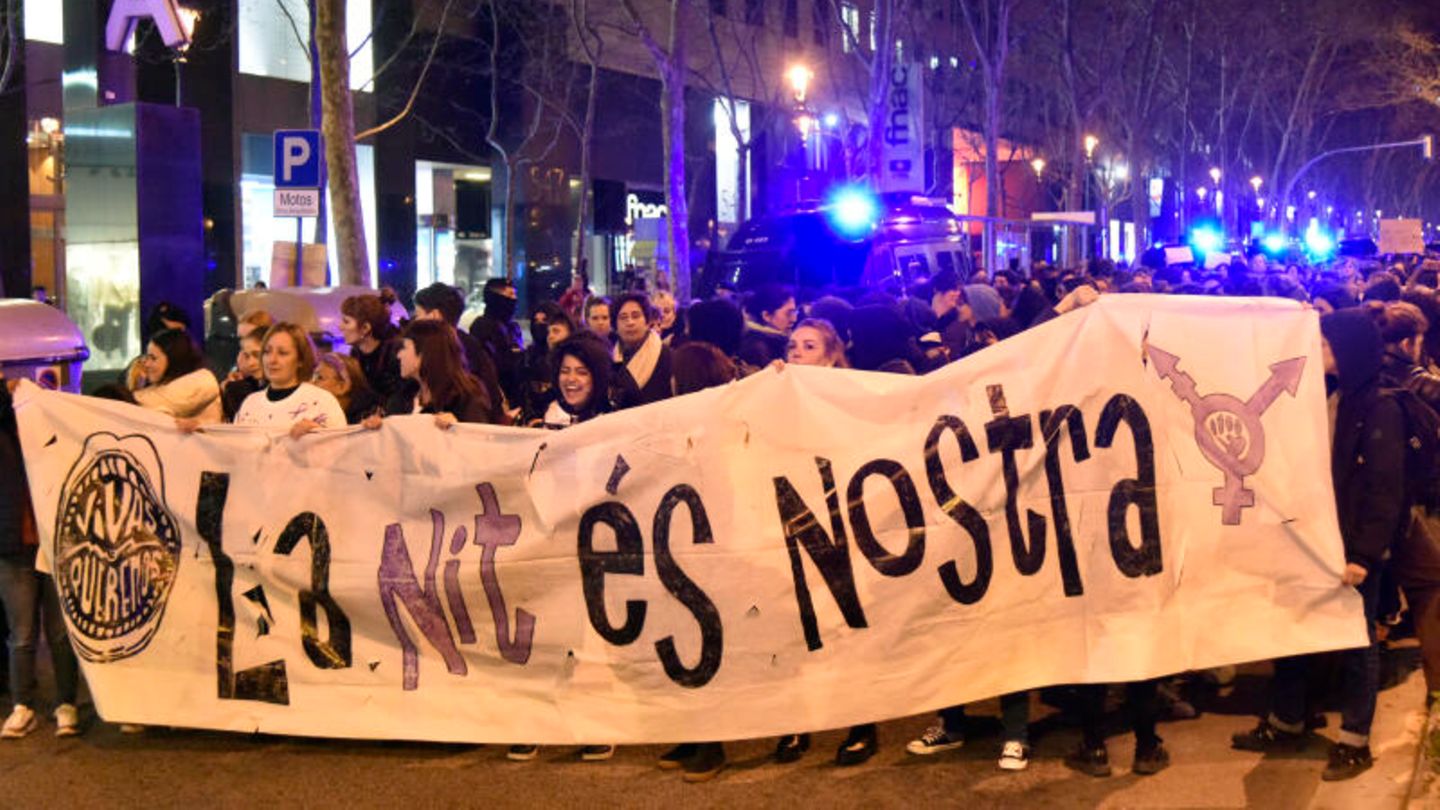The new sexual criminal law should actually be the flagship project of the left-wing government in Spain. But it also prematurely opened the cell doors to dozens of sex offenders. The fiasco threatens the now divided coalition in the “super election year” of 2023.
Ironically, at the start of the “super election year” 2023 in Spain, the left-wing minority government of Prime Minister Pedro Sánchez got into violent turbulence. What the difficult years of the pandemic and the consequences of the Ukraine war could not do, the first coalition government since the 1930s has brought on itself. Above all, with a new sexual criminal law that should actually protect women better – but unexpectedly opened the cell doors prematurely to dozens of convicted sex criminals. A storm of indignation has been sweeping the country for weeks. And that threatens to put an end to the “left spring” in Spain.
The set of rules, which was only passed with great fanfare in October, must therefore be changed again as a matter of urgency. During the heated debates about the initiation of the new reform process, the two coalition parties were not only attacked by the opposition in parliament on Tuesday. Sánchez’s Socialists (PSOE) and junior partner Unidas Podemos (UP) also fell on each other. When they voted, they voted against each other. The PSOE only got its motion through thanks to the opposition. The commentator for the state television station RTVE saw a “break” in the coalition, while other media spoke of a “war” in the Palacio de la Moncloa government palace.
Spain’s government is facing massive problems – even beyond the “Only yes means yes” law
According to the latest polls, the Socialists are threatened with a debacle in the parliamentary elections at the end of the year. But it’s not just the fiasco surrounding the “Only yes means yes” law that is to blame. Other affairs and problems are increasingly burdening the government. In the Canary Islands, the judiciary is investigating allegations of corruption, including against an ex-PSOE MP who was photographed in his underpants in a whorehouse.
Then Ferrovial, one of the country’s largest construction groups, announced that it would be relocating its headquarters from Madrid to the Netherlands. The government accused company boss Rafael del Pino of unpatriotic behavior. The opposition, on the other hand, saw the move as proof of their accusation that the government was scaring off the economy. Reduced sentences and pardons for Catalan separatists have also not gone down well with many citizens outside the region.
The worst for the government, which wanted to position itself as an advocate of women’s rights in the “super election year”, could be the consequences of the sex criminal law. Since October, more than 700 offenders convicted of sex offenses have had their sentences reduced. 74 were even released early – including a serial offender in Lleida, Catalonia, who had raped 17 women and whose sentence was reduced from 15 to 9 years.
Opposition pours fuel on the fire
The opposition is rubbing its hands, of course. “We’re afraid to take to the streets and meet the rapists you released,” shouted MP Carla Toscano from the right-wing populist party Vox on Tuesday at the lectern in parliament.
The coalition partners had been trying for months to defuse the dispute. The Socialists considered a correction of the law to be inevitable. Equal Opportunities Minister Irene Montero of the UP, from whose house the reform originated, however, blamed the judiciary. She accused prosecutors and judges of “macismo,” which led to the “incorrect application” of what was in itself a “good law.” The Association of Judges for Democracy dismissed the statement as “unfortunate and inappropriate”.
Reform of the sex criminal law backfires
But what is the dispute about? Until the reform in October, Spanish sex criminal law made a distinction between sexual abuse (abuso sexual), which was punished more mildly, and sexual aggression (agresión sexual), which was punished more severely, which was adopted when a sexual act was committed against the will of the victim with violence or intimidation. The reform abolished the offense of “abuso sexual”. Since then, sexual aggression has been central, which is always assumed if a woman has not expressly consented to a sexual act. In this way, the victims of rape should be spared having to produce evidence in court, which is often difficult to produce and often degrading, that a sexual act was committed with violence.
However, since the criminal offense of sexual aggression now also includes less serious offences, the minimum sentence has been reduced from six to four years, and in some cases the maximum sentence has also been reduced. According to the rule of law, that the most favorable law should always be applied to everyone, judges reduced prison sentences even for offenders who had already been convicted.
The UP fears that the PSOE could give in to the demands of the conservative opposition during the upcoming debates on the new reform of the law and accept a return to the old way of life: “We don’t want a return to a patriarchal system in which you as a victims were asked if their legs were properly closed,” said Montero.
The unwanted effects of the law put the government in distress. The newspaper “La Razón” predicts a “crash” by Sánchez. The head of government hardly kept his anger behind the mountain. “The law has had some undesirable effects in its application. Undesirable effects is an understatement,” he said. Several PSOE politicians have denied UP’s allegations, saying they will not deviate from the principle of the consent of all parties involved in sexual activity.
Source: Stern
I have been working in the news industry for over 6 years, first as a reporter and now as an editor. I have covered politics extensively, and my work has appeared in major newspapers and online news outlets around the world. In addition to my writing, I also contribute regularly to 24 Hours World.




